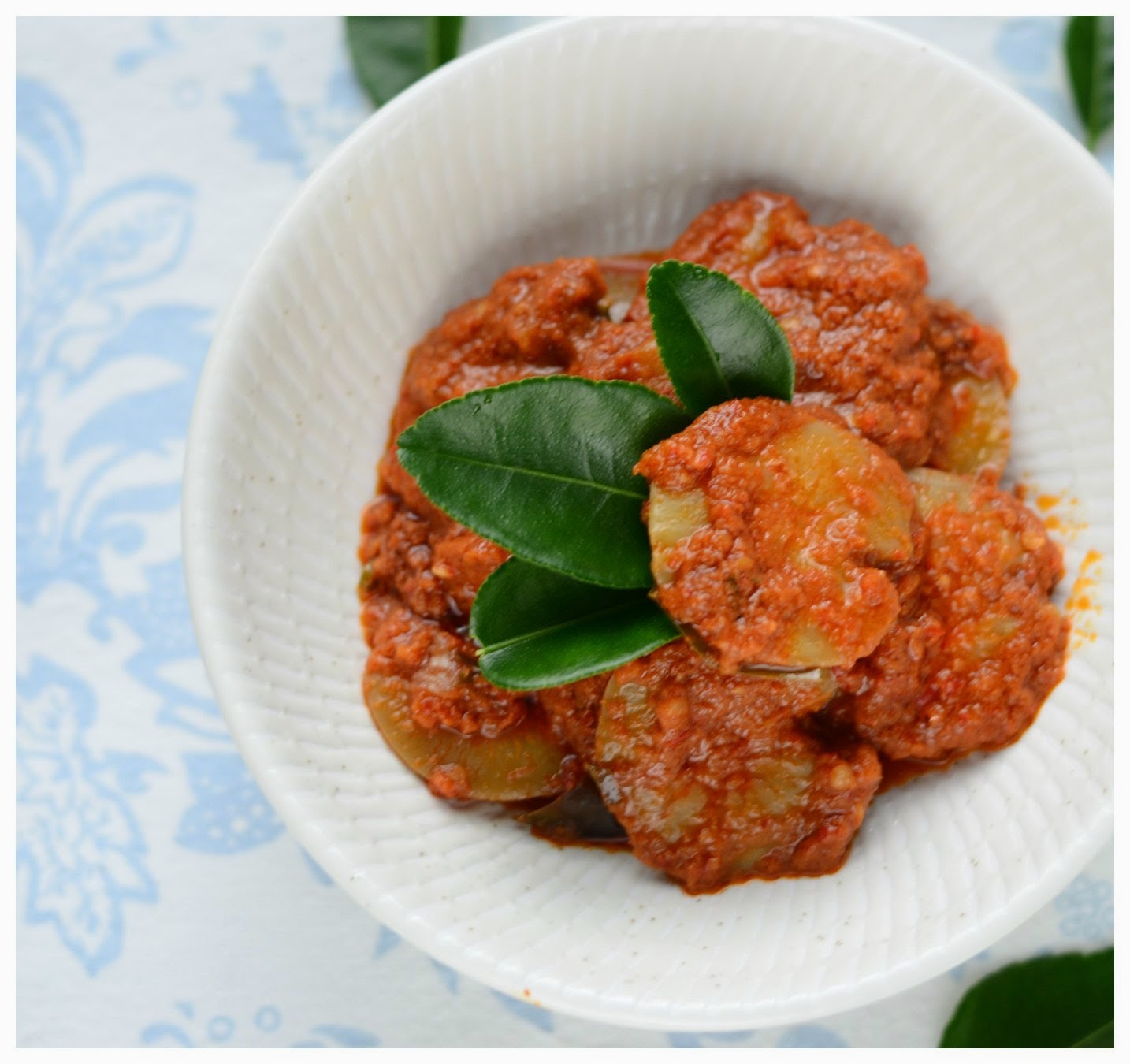Jengkol sangat populer di Sumatera Utara dan banyak tumbuh di daerah Simalungun, banyak dikirim ke Jawa terutama ke Jakarta. Belakangan ini harga jengkol cukup tinggi, di Medan Rp 45.000 per 1 kg, ini lebih mahal dari harga daging ayam.
Jengkol umumnya dimasak rendang walaupun (bumbunya tidak persis sama dengan rendang daging, tapi hampir sama dengan bumbu gule) ada juga yang memasak semur atau gule. Hanya baru-baru ini saja saya mencoba rendang jengkol. Ternyata rasanya enak, pulen dan ada sedikit rasa pahit, tapi masih juga kurang berani makan, karena baunya setelah mengkonsumsi.
Banyak pro dan kontra memakan jengkol, karena manfaat dan bahayanya bagi kesehatan. Untuk lebih jelas baca link mengenai jengkol ini.
Jengkol is very popular in Medan, we normally curried them or we call it rendang jengkol. To know more about this fruit, here is the compilation from wikipedia: Archidendron pauciflorum, commonly known as Jengkol, Dogfruit, or Jering is a species of flowering tree in the pea family, Fabaceae, that is native to Southeast Asia. Despite its strong smell, the beans are a popular food inIndonesia, and also consumed in Malaysia (where they are known as jering), Myanmar (where they are called da nyin thee), and in Southern Thailand, where they are called luk-nieng or luk neang.[1] The large brown legumesare very popular and cooked as satay or curry, especially rendang, in Indonesia. In Burmese cuisine, the da nyin thee is either roasted or boiled, and often eaten along with a pickled fish sauce (Ngapi yay) on steamed rice.
The beans are mildly toxic due to the presence of djenkolic acid, an amino acid, which causes djenkolism (jengkol bean poisoning). Symptoms include spasmodic pain, gout, urinary obstruction, and acute renal failure.[2] The condition mainly affects men, and is not determined by how the beans are prepared. Individuals can consume the beans on multiple occasions without incident, to develop renal failure on another occasion.[3]
bahan - bahan / the ingredients
500 gr jengkol
500 gr dogfruit, jering
Bumbu yang dihaluskan / The Paste
50 gr cabe merah
50 gr red chilli
75 gr bawang merah
75 gr shallot
3 siung bawang putih
3 cloves garlic
4 biji kemiri
4 candle nuts
2 cm lengkuas muda
2 cm young fresh galangal
2 cm jahe
2 cm fresh ginger
bahan-bahan lain / other ingredients
5 lembarJeruk purut, rajang halus
5 kaffir lime leaves, finely sliced
2 lembar daun salam
2 salam leaves (Indonesian bay leaves)
1 tangkai sereh, memarkan
1 stalk lemon grass, bruised
100 santan kental
100 ml thick coconut milk
300 ml santan encer atau air
300 ml light coconut milk or water
garam secukupknya
salt to taste
Cara memasak / preparation
Rebus jengkol sampai lunak, kupas dan belah
Boil the dog fruit until soft enough, peel and cut in half
Memarkan belahan jengkol dan cuci kembali
Bruised the halved dog fruit and rinse once more
Tumis bumbu sampai harum, tambahkan bumbu lainnya kemudian masukkan jengkol dan santan encer atau air, masak sampai santan tinggal setengah.
Saute the paste until fragrant, add the other ingredients then the dog fruit and light coconut milk or water, boil until the coconut milk reduced into half.
Masukkan santan kental, lanjutkan memasak sampai jengkol lembut dan santan agak mengering atau kering tergantung selera anda.
Put the thick coconut milk, continue cooking until the dog fruit really soft and the coconut milk reduced or dryer depend on your taste









No comments:
Post a Comment